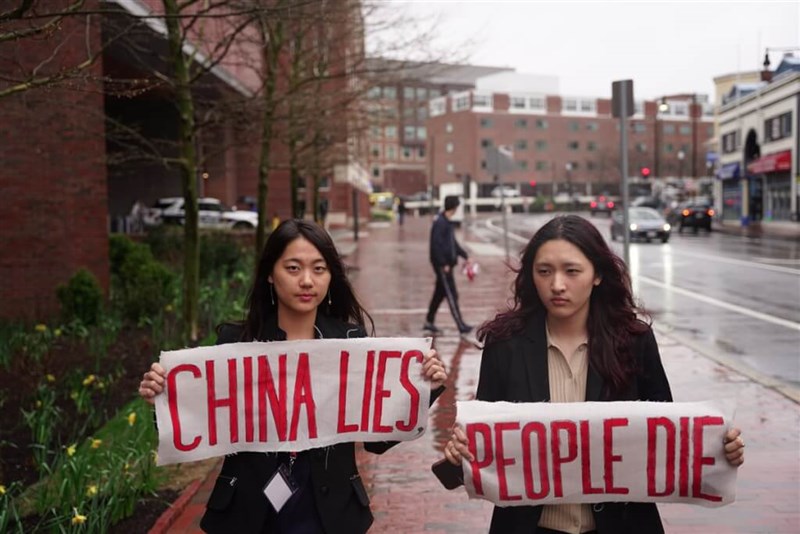
A group of Taiwanese-American and Tibetan students dramatically interrupted a speech by Chinese Ambassador Xie Feng at Harvard University, voicing strong opposition against China‘s human rights practices. The protest took place during the opening ceremony of the Harvard Kennedy School China Conference 2024, disrupting the event for approximately 45 minutes.
Cosette Wu, a Taiwanese-American student and co-director of the Coalition of Students Resisting the CCP, led the protest by holding a banner stating “China Lies, People Die.” Wu confronted Ambassador Xie directly, accusing him of masking the reality of a “prosperous China” while being complicit in human rights abuses across various regions, including Hong Kong and Taiwan.
The protest inside the hall was matched by demonstrations outside, organized by both the Coalition of Students Resisting the CCP and Students for a Free Tibet. These groups aimed to highlight the Chinese government’s repressive actions not just in Tibet and Hong Kong, but also towards Uyghurs in East Turkestan and democratic freedoms in Taiwan.
ALSO READ: Over 100 Tibetan Families Relocated for New Hydropower Station in Tibet
Ambassador Xie Feng, who played a significant role in overseeing Beijing’s policy during Hong Kong‘s 2019 protests and the subsequent enforcement of the National Security Law, was met with accusations of facilitating a dystopian state in Hong Kong and making veiled threats of war against Taiwan. Wu’s vocal opposition emphasized the ambassador’s direct involvement in policies she claimed devastated Hong Kong’s democracy and threatened Taiwan‘s sovereignty.
In solidarity, a Tibetan student also voiced her protest, focusing on the plight of Tibetans under Chinese rule, including the forced assimilation of Tibetan children in state-run boarding schools where their cultural and linguistic heritage is suppressed.
The actions of these students at Harvard underscore a growing discontent among diaspora communities with China‘s foreign policy and domestic governance strategies under the CCP. This protest serves as a potent reminder of the ongoing struggles faced by Tibetans, Hong Kongers, Uyghurs, and Taiwanese, uniting them in their call for greater international awareness and intervention.
The Chinese embassy, in response to the protest, issued a statement reiterating its position on Taiwan and other sensitive issues, labeling them as core matters of national sovereignty and warning against foreign interference.
This incident at Harvard not only highlights the tension between academic freedom and political discourse but also amplifies the voices of those oppressed by policies enacted under the guise of national security.
The protestors’ courage in standing against a high-ranking Chinese official on such a prominent international stage has sparked discussions on the limits of diplomatic immunity and the role of universities as platforms for free speech and political debate.






